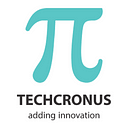Develop Your Next Cloud-Connected Mobile App With Xamarin And Microsoft Azure
Mobile app development is getting complex with each passing day, and with the evolving demand to bring computing capabilities at par with personal computers, cloud-connected mobile app development is gaining traction. Talking about the technicalities, a cloud-connected mobile app refers to the use of cloud-based servers and storage space for facilitating shared services. It acts as the backend of your app and allows you to render a smooth, seamless user experience regardless of the volume of the data to be handled. Facebook and Instagram, for instance, follow the same model to handle their multimedia rendering requirements. Today, we will have a look at why you should prefer Xamarin And Microsoft Azure to power the mobile app development process for your next cloud-connected smartphone app. Let’s begin.
What Is A Cloud-Connected Mobile App
In simple words, it uses a cloud-based backend to connect the user’s smartphone with the shared services infrastructure. It can also support Mobile Back-end as a Service (MBaaS) as required. This allows cloud-connected mobile apps to support technically sophisticated functions which cannot be run on native apps directly due to the shortage of hardware resources. These apps can use the local hardware like the GPS sensor, camera, and other capabilities as required to extend a smooth user experience, including applications like immersive tech.
What Are Xamarin And Microsoft Azure
In this section, we will have a look at one of the most popular tech stacks used by mobile app developers for building cross-platform, cloud-connected mobile apps: Xamarin And Microsoft Azure. Building apps separately for Android and iOS can be costly as it stretches the development cycles, testing, and debugging. Also, using Xamarin And Microsoft Azure allows you to embed advanced functionalities like cognitive capabilities.
Xamarin
Xamarin is an open-source platform that allows mobile app developers to build native apps Xamarin using .NET and C# for both iOS and Android. It supports full cross-platform capabilities, and the Microsoft Corporation owns it. It is XAML and .NET.
Microsoft Azure
All cloud-connected mobile apps require a cloud infrastructure by default for storage of structured and unstructured data, authentication, and running intelligent services. Since Xamarin is Microsoft-owned, using Azure cloud services will provide you with additional compatibility benefits apart from Azure’s wide range of tools and technical features.
How Xamarin And Microsoft Azure Benefit Cloud-Connected Mobile App Development
Together, Xamarin And Microsoft Azure provide numerous technical advantages that make the mobile app development process simpler for the set of functionalities worked on. They support up to 90 to 95% code compilation for native binaries with the help of MVVM design patterns and Xamarin.Forms. They allow you to implement CI/CD and implement automated scalability using dockerization. It can be easily integrated with multiple SDKs to support external hardware like Google Glasses and Amazon Fire Phone. They also allow the app to implement push notifications for alerting the user based on predefined triggers. This could be location-based announcements or a simple newsfeed.
You can also run numerous versions of your backend and test new features which could be later embedded in the main source code. The emulators also help in the testing process so the clients can have a realistic view of the UI and UX. The huge number of libraries available for APIs and C/C++ also improves developer productivity by leaps and bounds.
Thus, we can agree to the fact that the combination of Xamarin And Microsoft Azure can provide exceptional technical functionalities despite the shorter development cycle.
Wrap Up
There are many options available in the market when it comes to developing cloud-connected mobile apps, but the combination of Xamarin And Microsoft Azure comes with two benefits as a product owner: Firstly, both of them are owned by Microsoft, which adds to their compatibility, and secondly, they have a huge number of interoperable resources and tools available. Using them will also reduce the total cost of ownership due to the shared resources and native binary compilation. If you are looking for a technically sound and seasoned mobile app development company that can deliver up to your expectations, you may contact Techcronus right away. Our technical team will get back with an appropriate solution for your requirement. We hope this article is helpful.
